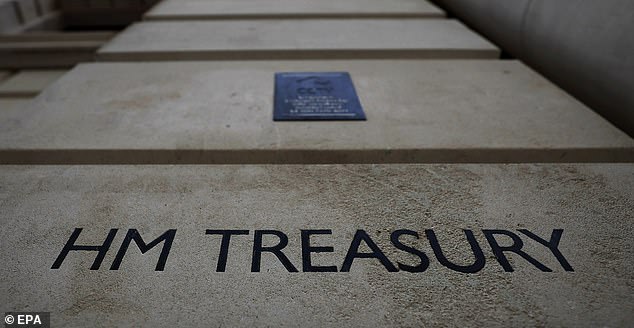Table of Contents
The government debt market has a lot to think about after Labour’s first budget in 14 years.
Gordon Brown may have tested everyone’s patience with his attack on pension funds in 1997 and his higher taxes for the NHS in 2002, but one can never imagine him delivering something as challenging to the public finances as Rachel Reeves.
Despite huge tax rises imposed on businesses through the National Insurance increase on employers – which the Office for Budget Responsibility says will deprive workers of £15.5bn in wages by 2029-30 – the budget It is anything but stable.
New rules: The Treasury has historically been the voice of fiscal orthodoxy and is seriously concerned about how interest rate costs fuel borrowing and national debt.
Reeves’ new interpretation of debt may give the government more breathing room, but it does not make it easier to finance the deficit.
The second review of the Debt Management Office’s (DMO) money raising, in the current financial year 2024-25, means a huge funding need of £311.5bn.
This figure is reduced to £299.9bn by the £9bn raised by National Savings for retail investors selling “green” bonds.
By the way, the popularity of climate change bonds shows that it is necessary to allocate bonds to specific objectives such as space exploration or small modular reactors (SMR).
The DMO has a huge mountain to climb and it will not be a free undertaking for the economy. The rally in ten-year bonds to 4.39 percent widens the gap with German bonds.
As yields rise, they become a much bigger temptation for risk-averse British pension funds.
There was nothing directly in the Budget to force them to return to risk-based investments in listed shares, start-ups and the like, despite efforts by successive chancellors to encourage a change in approach.
Unlike pension funds, around 35 per cent of UK private investors own shares listed in London.
If only UK asset managers could be encouraged to do the same, it would more than address Britain’s entrepreneurship investment gap.
Reeves prepared markets for a change in fiscal rules to encourage borrowing for investment.
But when bond watchers dig to check the foundations, they may well detect more subsidence than is tolerable. This may not imply a “Truss” crisis, but it does portend higher interest rates than they would otherwise be.
Bond rates set the price of fixed-rate mortgages, so homeowners get the impression that the relief they expected won’t be as great.
The Treasury has historically been the voice of fiscal orthodoxy and is seriously concerned about how interest rate costs fuel borrowing and the national debt.
It is the job of public officials to turn government policy into reality. But by agreeing to Labour’s new definitions of debt, excluding vital obligations from the calculation, officials are carelessly playing with credibility.
Vaccine drought
If we didn’t know better, Emma Walmsley could be accused of publishing negative data on budget day in the hope it would go unnoticed. GSK is big and important enough to know that there is little chance of that happening.
Anyone who has watched American television in recent days might have noticed that GSK’s powerful vaccine portfolio is suffering. Big Pharma has long been a force for commercial broadcasters.
Promotions for GSK’s Arexvy respiratory vaccine and its successful Shingrix shingles vaccine are heavily featured.
But despite all the publicity, Arexvy’s sales fell 72 per cent to £188 million in the third quarter and Shingrix also fell 7 per cent to £739 million.
Clearly, the hits need reinforcement. The company says both vaccines will only grow in the low single digits this year.
After the recent push to settle the Zantac ulcer treatment litigation, GSK shares took a 3.1 percent hit.
Perhaps budget help for the NHS and Labour’s belief in preventive treatments will ease the pain.
Unreliable flight path
No one will shed many tears over Rachel Reeves’ tax on private jet users. After all, this is a tax aimed at the much-appreciated super-rich.
But as we know from Monaco’s tax exiles and Big Tech evasion, those who have the most are often reluctant to pay their fair share.
Even a minor change in dials could lead potential investors in the UK to stray towards Milan, Lisbon or Dubai.


